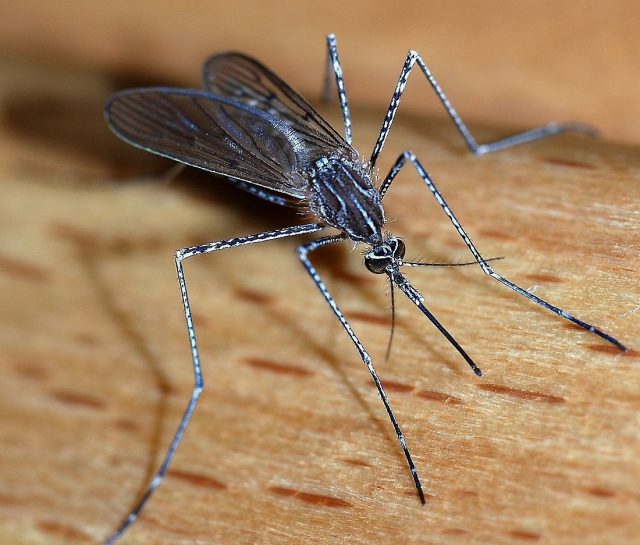A second mosquito sample collected from Northfield has tested positive for West Nile virus, according to the Atlantic County Division of Public Health.
The latest sample was collected Aug.1 from the 700 block of Debora Street and confirmed positive on Aug. 9. An earlier sample collected from the 1200 block of Zion Road was confirmed for West Nile virus in mid-July. Previous collections from Egg Harbor City also tested positive for the virus.
County public health and mosquito control officials are conducting mosquito surveillance and implementing additional control measures. There are no reported human cases of the virus at this time.
West Nile virus is carried by infected mosquitoes and can be transmitted to birds, animals and humans. Health officials encourage residents to reduce their risk and the spread of West Nile virus by reducing their exposure to mosquito bites by following these tips:
Use an insect repellent whenever going outdoors. Repellents are an important tool to assist people in protecting themselves from mosquito-borne diseases. The Centers for Disease Control recommends the use of products containing active ingredients that have been registered by the U.S. Environmental Protection Agency for use as repellents applied to skin and clothing and approved for efficacy and human safety when applied as directed. Be sure to follow product directions carefully and consult with your child’s doctor prior to using on children.
Rid properties of mosquito breeding grounds by draining standing water.
Mosquitoes do not travel far from where they breed. Buckets, bird baths, flower pots and other containers can hold water and provide an ideal environment for mosquitoes. Be sure to empty these containers regularly.
Clean clogged gutters; check and repair screen doors; cut high grass around the yard.
For more information about West Nile virus, visit the Atlantic County Web site at www.aclink.org/publichealth or call the Division of Public Health at 609-645-5971.
If you need assistance in removing stagnant puddles or floodwater from your property, call the Office of Mosquito Control at 609-645-5948.








